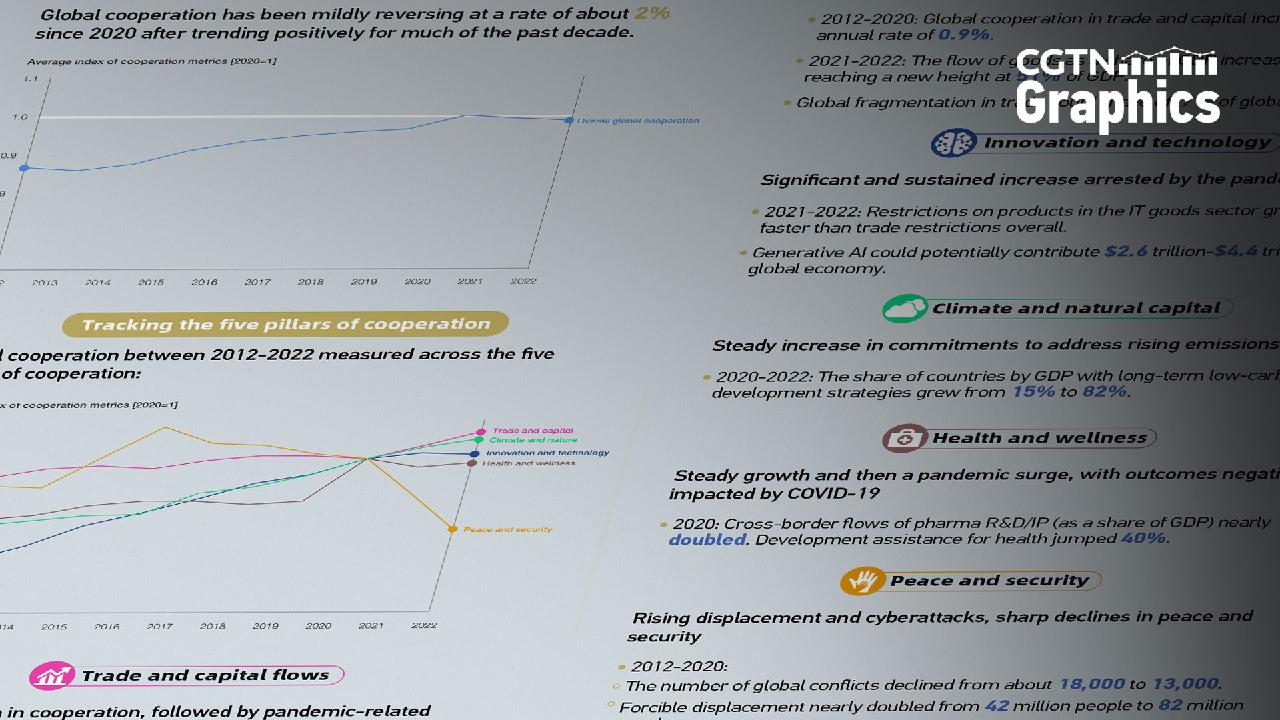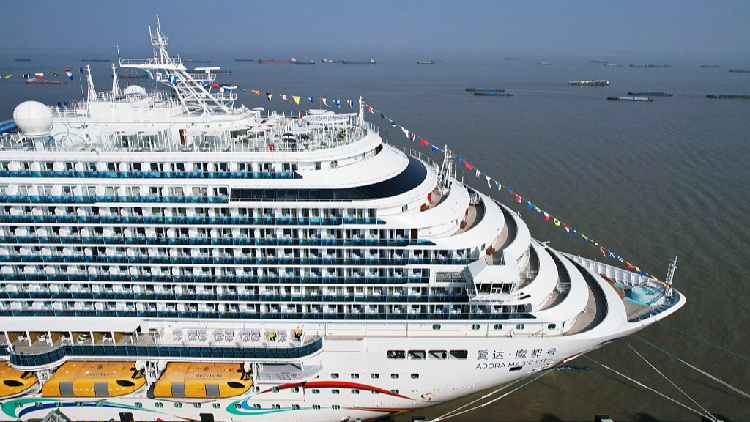The annual World Economic Forum (WEF), which started on Monday, called for rebuilding trust amid sluggish global growth outlook. The forum earlier pointed out cooperation is possible even in the midst of competition.
“The world is facing complex challenges. Addressing them demands cooperation at the global level,” the forum said in a report titled “The Global Cooperation Barometer 2024,” which was released by the WEF in collaboration with McKinsey & Company last week.
The world is seeing a plethora of challenges, such as high global temperature, record high forcible displacement, ongoing threats of a pandemic and the risks of new and unregulated technologies, according to the WEF.
The global economy is also in fragile, with growth expected to be well below the historical average, according to the International Monetary Fund. Revitalizing trade could strengthen the economic outlook, but global fragmentation could shave off 7 percent of global GDP.
According to the report, global cooperation was resilient in multiple dimensions from 2012 until 2020. However, overall cooperation declined by 2 percent from 2020 to 2022, mainly due to weakened cooperation in peace and security, as well as health and wellness.
The Global Cooperation Barometer used 42 indicators to measure five pillars of global cooperation between 2012 and 2022: trade and capital, innovation and technology, climate and natural capital, health and wellness, and peace and security.
The barometer showed that leaders can work together despite not seeing eye-to-eye on everything, according to Børge Brende, president of the World Economic Forum.
“It’s clear that on some dimensions the world has become increasingly divided, yet the barometer shows that when you look at the full picture, global cooperation has remained surprisingly robust over the last decade,” said Bob Sternfels, global managing partner of McKinsey & Company.
A notable example in 2022 is that bilateral trade in goods between China and the U.S. hit a record high at $690.6 billion, amid heightened tensions as climate negotiations between both countries were suspended and talk of decoupling dominated airwaves.
Competition, and even confrontation, can spike in one area while cooperation can deepen in others. Cooperation is multifaceted and can coexist with competition, said the WEF.
Cooperation is also needed to unlock new opportunities. Generative AI could potentially contribute $2.6 trillion to $4.4 trillion to the global economy, but it requires substantial global coordination to mitigate risks and ensure benefits are shared widely.




